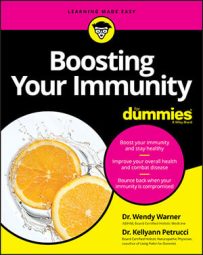HPV (human papilloma virus) causes cervical, vulvar, vaginal, anal, penile, and oral warts and cancer. At least 100 strains of HPV exist, many of which are rare and could be insignificant. However, four strains of human papilloma virus cause most cases of cervical cancer and genital warts. The virus is transferred by sexual contact, and condoms don’t always protect against infection. It’s estimated that around 80 percent of people who have ever had sex have contracted at least one strain of HPV.
The vaccine Gardasil was produced to immunize girls and boys against HPV. The thought was that if you get vaccinated at a young age, when you later get exposed to the virus, you won’t contract it and so you avoid getting the associated diseases. Currently, the vaccine is approved for use in girls and boys ages 9 to 26. If someone has already contracted one of the strains of HPV, he or she won’t be protected against that strain but can still get protection from the other three.
Taking a closer look at the vaccine
The vaccine Gardasil has its share of controversy, partly due to a campaign by its manufacturer, Merck, to persuade legislators to impose laws requiring 11- and 12-year-old girls to get the vaccine as a condition of attending school. This campaign was halted after a public outcry.
The data that Merck submitted to the FDA shows reduction in HPV infections compared to placebo over four years. Also, a reduced number of cases of cervical dysplasia (precancer) and cancer occur during this time as well in people under age 26. However, this form of cancer is usually slow growing, and little information is known regarding how long it takes from infection to manifestation of disease. Also, because the Merck studies lasted only four years, some question remains as to how long immunity lasts and whether booster shots are needed. In a study of women up to age 46, the vaccine didn’t show increased protection in higher grades of cervical dysplasia (disease closer to invasive cancer).
The safety studies done on this vaccine included several thousand individuals; the majority were over 16 years old. Original safety studies included only several hundred individuals from ages 9 to 16, although this age is actually the best group to vaccinate (assuming fewer of them have already been infected with the virus). Also, efficacy studies (checking to see how well it works) weren’t done to see the outcome of not adhering to the exact vaccination schedule. The vaccination needs to be given in three shots — the second at two months after the first one and the third during month six. Since the vaccine has been on the market, a fairly large number of people either don’t complete the series or don’t get them all within the specified time frame. It’s unclear how this impacts the protection they may receive, either immediately or over time.
Complications following vaccination vary, depending on which report you read. Officially, the common complications are pain and redness at the injection site, fainting, headache, and nausea. Some others outside the company and FDA report blood clots (some of which were fatal), Guillain-Barre syndrome (an immune-mediated paralysis), and even death. There’s no way to know which of these outcomes, if any, were actually caused by the vaccine or if they occurred coincidentally during the time after receiving the shot.
Exploring the benefits and risks of Gardasil
With all of this information, is getting the Gardasil vaccine necessary? Although HPV is common, the diseases it creates grow slowly and can be fairly easily treated with appropriate care. In fact, prior to the advent of Gardasil, many gynecologists simply monitored cases of dysplasia (early precancerous lesions) because in roughly 50 percent of cases, the body spontaneously healed the disease with no specific intervention.
Some people question how much Gardasil really lowers cancer mortality rates. Because this vaccine protects against only four strains of HPV out of more than 100, women and girls still need to have regular pap tests, but since the vaccine reduces the number of HPV infections, they require fewer follow-up visits with their doctors. In men and boys, the vaccine protects against genital warts and anal cancer. Because men and boys don’t undergo routine screening such as pap tests, the vaccine may have greater benefit, such as with gay men who have an increased risk for anal cancer.
Even if you contract HPV, you may not develop cancer. A healthy immune system keeps the virus dormant for years, even decades. If a young woman develops genital warts and has them treated, she may not have another outbreak. Or she may remain symptom free until some major change in her immune status occurs years later, like pregnancy or a serious illness. Even after a second round of virus expression, lifestyle changes and supplements can make the virus go dormant and prevent further changes in the cells of the cervix and skin.
Should you get the vaccine? Taking the Gardasil vaccinations could mean you're spared the hassle of follow-up paps and more. But it's not a guarantee that you still won't have abnormal paps. And you may suffer side effects from the shot, itself. Some people feel that because they’re healthy and have strong immune systems, the vaccine isn’t worth it. There's no easy or “right” answer, and each person has to decide for herself. Of course, because this vaccine is aimed primarily at minors, it's often parents who are making the decision.
As more studies are done on the long-term pros and cons of the Guardasil vaccine, the decision will be easier to make. In the meantime, whether you (or your children) get the vaccine, know that a healthy immune system fights HPV and many other illnesses.

